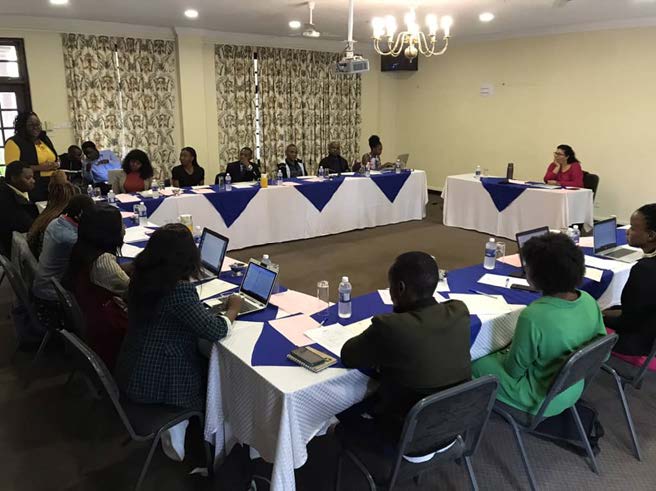Digital Rights in the Spotlight
From the Zimbabwe Council of Churches
Thursday 16 February saw the Media Institute of Southern Africa training local Civic Society Organizations (CSOs), the media, and human rights defenders on digital rights advocacy at Bronte Hotel in Harare.
Two representatives from the Zimbabwe Council of Churches participated in the workshop which aimed at training organizations on developing a digital rights advocacy strategy.
The key issue was to come up with strategies on how CSOs can include digital rights in their programming. The Zimbabwe Council of Churches was applauded for its participation in the training and its role in championing digital rights as the country rolls towards an election. Participants agreed that Zimbabwe needs to put in more work towards digital inclusion and the protection of citizens’ digital rights. Delegates expressed their concern about issues such as data privacy, affordable internet, infrastructure, gender inclusion, communication technologies, disability rights, and information and communication technologies (ICTs).
The respect for digital rights has steadily decreased as Africa’s internet infrastructure has grown. To increase confidence and trust in the secure use of information and communication technology, the Zimbabwean government passed the Data Protection Act, which also advances women’s and children’s rights.
Reyhana Masters, a communications expert who facilitated the training stressed the necessity to address current laws and regulations regarding digital transformation, which are still far from sufficient and whose implementation is complicated by state actors’ noncompliance. Nompilo Simanje, Communications Specialist at MISA Zimbabwe noted the importance of digital rights training to the Zimbabwe Council of Churches and reiterated its magnitude in the #Iprayivote campaign.
She implored ZCC to further train its member churches and election observers on digital rights to ensure their safety online. The delegates concurred that ZCC’s direct engagement with grassroots communities places it in a strategic position to serve as a resource and educator for the general public. Given the organization’s track record of positive impact and sizable membership, strategic partnerships with other CSOs on digital rights advocacy will have a significant impact.
The training closed off with participants giving recommendations to various stakeholders with CSOs urged to acknowledge that digital rights are an extension of human rights for the internet age.

